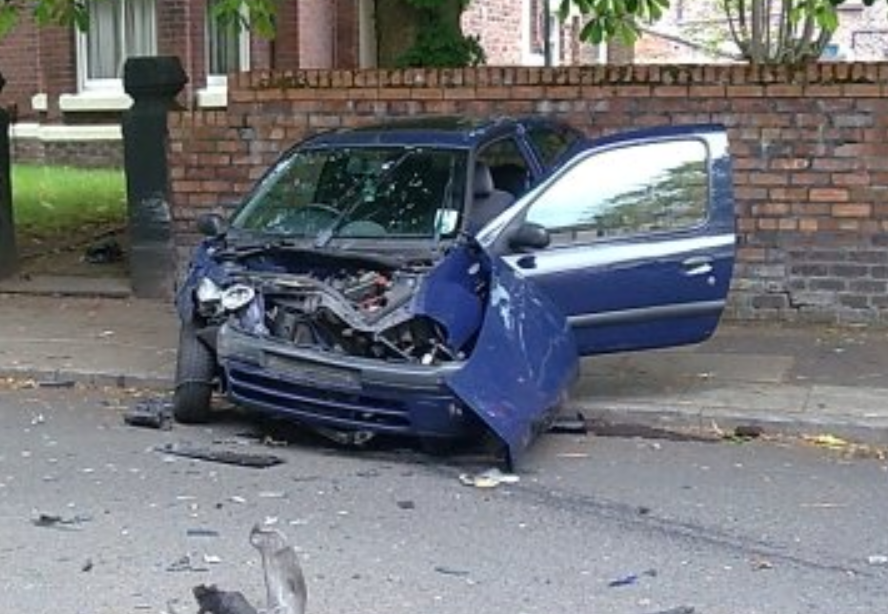Although making every effort to drive safely can help to reduce your likelihood of being in a traffic accident, there’s no denying that the roads are unpredictable. Safe and conscientious drivers can find themselves at the wheel of a badly damaged car through no fault of their own; you can never tell who’s going to be on the road when you’re driving and, sadly, some drivers don’t take as much care.
However, after tending to any injuries caused, what usually matters the most after being in a car crash is getting your vehicle back on the road. Most people today use their cars routinely to get to work, take their kids to school, and uphold their other commitments – getting back on the road is essential. If you have been in a car accident that’s caused serious damage to your car, here are the options available.
#1. Insurance Claim:
The first thing that you should do after you have suffered a car accident is report it to your insurance company. After all, it’s what you pay the premium for. You should report the accident and any damage to your vehicle as quickly as possible if you want to make a claim, as reports made several weeks or months after the incident may be declined by your insurer. Your insurance company will cover the cost of any repairs needed to your car, unless they deem it to be damaged beyond repair or worth less than the cost of the work. Here is what to do after you are injured in a car accident in Georgia
#2. Third-Party Insurance Claim:
Every driver on the road is required by law to have insurance that covers third parties. Most drivers today have comprehensive insurance, which protects them against any damage to themselves and their own vehicle, as well as other road users. If you have been in a car accident and the other party was at fault, you will be able to claim damages from their insurance policy. If you have comprehensive cover, then you will be able to do this through your own insurer. They will recover the money from the third-party’s insurance company. You may also be able to claim uninsured losses from the other driver’s insurance company. These include cover for the cost of alternative transport or provision of a courtesy car, excess on your policy, and loss of earnings.
#3. Car Scrappage:
Getting rid of your car entirely to purchase a new one may seem like a drastic measure after a minor car accident, but for certain vehicles, it may be the most sensible option. If your car is very old, already slightly damaged, or has other problems then you may want to consider if losing any non-protected no claims bonus is worth it. This may also be the case if your car is not an older or problematic vehicle but has been damaged beyond reasonable repair. In this case, you will still be able to make a claim with your insurance company who will likely declare a total loss and compensate you accordingly. If you claim, your insurance company will arrange for the car to be removed. If you don’t want to make a claim, you can scrap your car privately with Scrap Car Network, an organisation that scraps cars. They’ll ensure you get the best price and collect your car for free. You will need to inform the DVLA of your decision to claim back any unused tax on the scrap car.
#4. When to Report to the Police:
Any major car accidents should be reported to the police, however, there are instances where law enforcement may not need to be involved, particularly for minor accidents that do not cause a great deal of damage. If an injury has occurred to any person as a result of the road traffic accident, it must always be reported to the police. You should also call the police if you suspect that any driver is under the influence of drugs or alcohol, if you are blocking the road, or suspect that you have been a victim of a ‘crash for cash’ scam where fraudsters deliberately crash into the front of the vehicle to submit a false insurance claim.
#5. Declining the Claim:
You do not have to accept the offer given to you by your insurance company when making a claim for an accident-damaged car. If you wish, you are within your rights to decline their claim and repair or dispose of your vehicle how you choose. For example, you may be able to find a mechanic who is willing to repair your car at a price you feel comfortable with. Some people decide to sell their cars to body repair specialists, whilst others sell them for parts or recycling. If you decline the claim settlement offer, what you do with the car is up to you. However, you will not receive any compensation for your vehicle.
Knowing your options after being involved in a car accident will help you get back on the road in no time.

